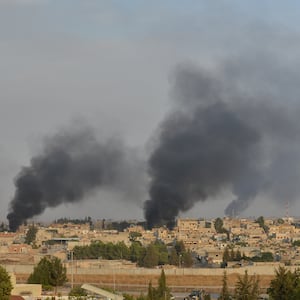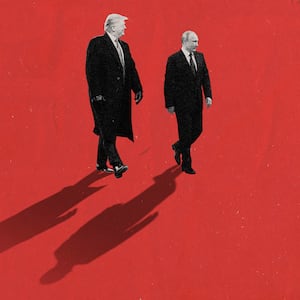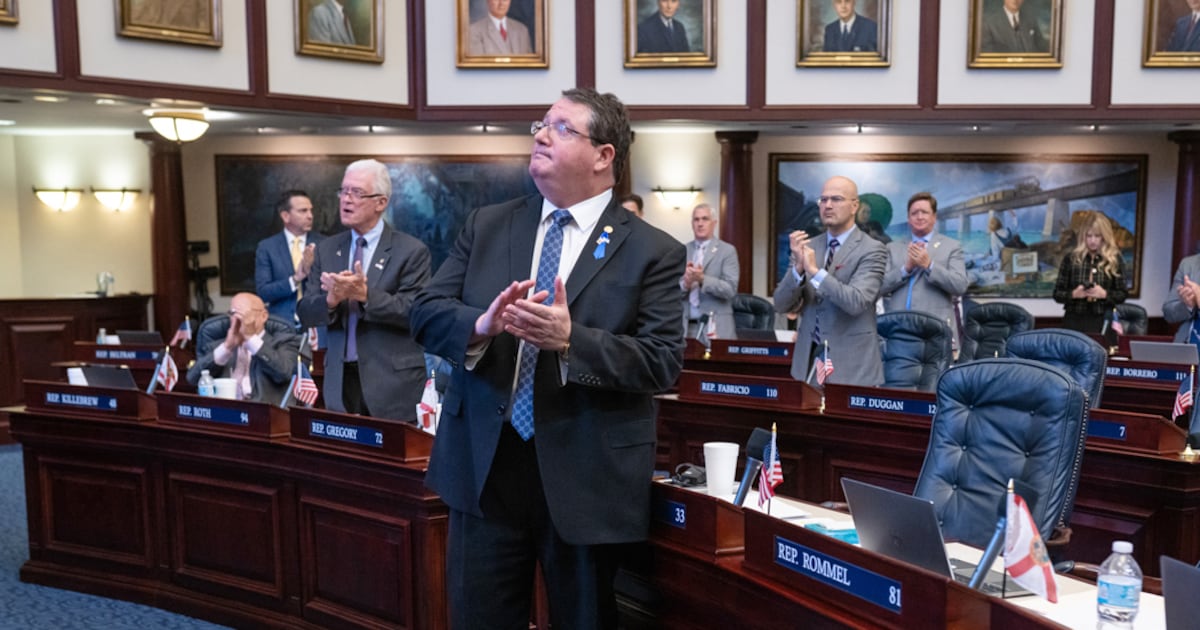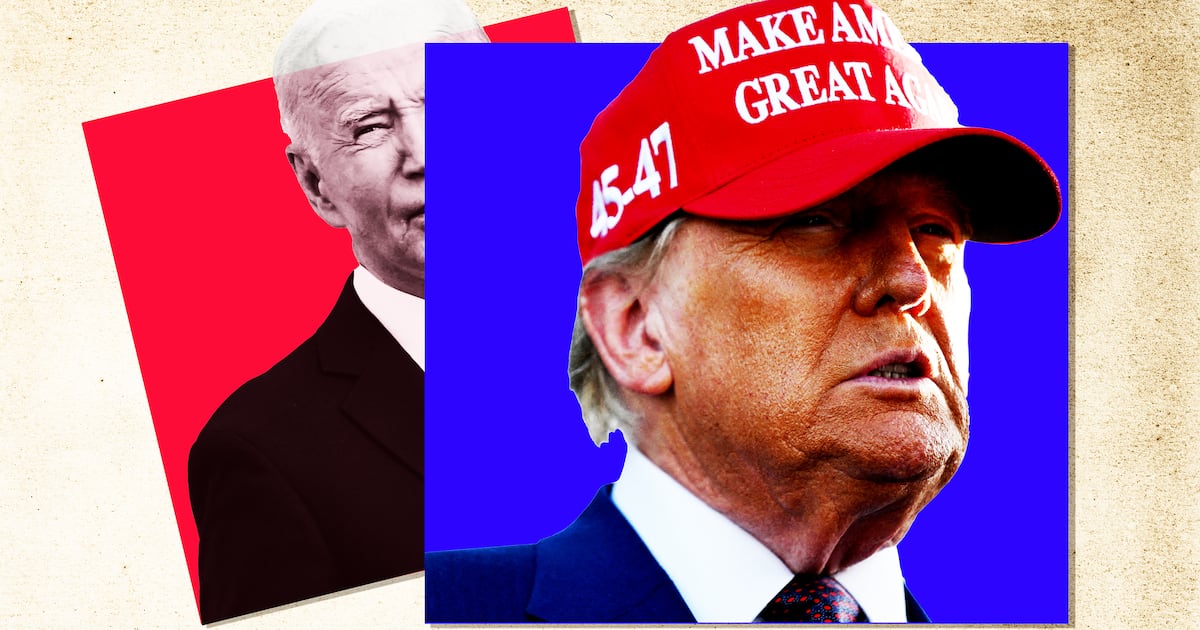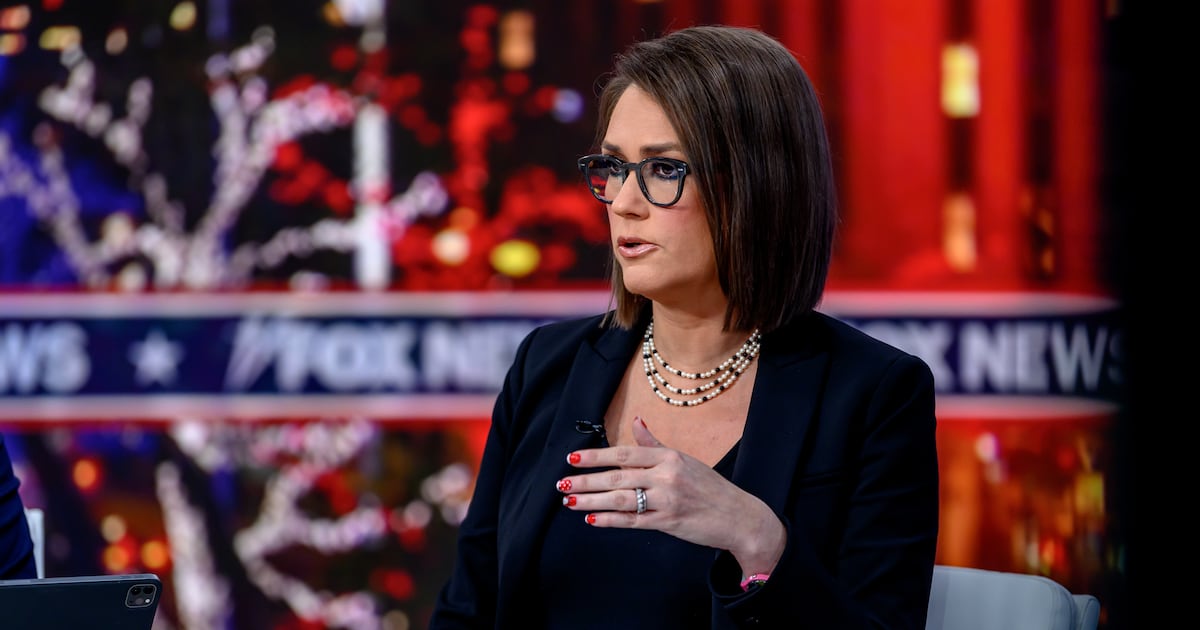President Donald J. Trump’s surprise decision to abandon the Kurds and sign off on Turkey’s operation in Syria drew condemnation in the West, but was cheerfully welcomed in Russia, and, for those who follow Russia closely, the contrast revived the ghosts of Helsinki, where Trump’s surrender of American values was on full display.
There in Finland last year, the leader of the most powerful country in the world demonstrated cringeworthy servility toward Vladimir Putin—president of a rogue government sanctioned by the West for a great number of malign activities, including Russia’s brazen interference in the U.S. elections.
The world’s pariah looked triumphant next to the deflated American president. As Trump stood hunched over, with a blank expression, Putin was practically glowing—and he wanted the world to know just how great the meeting went for Russia. Putin held up a thick stack of his notes with both hands, showing them off for the world to see, in effect giving himself the thumbs-up.
ADVERTISEMENT
Discernible portions of the first page, purposely written in abnormally large script, included references to the election interference, Putin’s request that Russia be allowed to interrogate the former U.S. ambassador to Russia, Michael McFaul, and also the British businessman Bill Browder, pursuant to the 1999 Treaty with Russia on Mutual Legal Assistance in Criminal Matters. There was a reference to the Nord Stream 2 pipeline. And at the bottom of the first page, Putin’s notes also mentioned Syria, where Russia has been wreaking havoc and committing mass atrocities in concert with Syrian dictator Bashar al-Assad and Iran.
For public consumption, the Russian president’s handwriting mentioned “joint humanitarian operations with the goal of creating conditions for the return of refugees.” The reality on the ground tends to create—not dissipate—the flood of refugees, essentially weaponized by Russia and Syria to destabilize Europe.
On Wednesday this week, President Trump nonchalantly commented that if the thousands of ISIS prisoners that are currently being held by U.S.-backed Kurdish forces escape, "they will be escaping to Europe." Turkey’s President Recep Tayyip Erdogan is also threatening Europe with a flood of refugees, publicly proclaiming, “We will open the gates and send 3.6 million refugees your way.”
Mystery surrounds the rest of the topics discussed by the President of the United States with the Russian leader in Helsinki, since President Trump confiscated the American interpreter’s notes and remains tight-lipped about his exchanges with Vladimir Putin. But one thing is clear: Trump is moving down Putin’s wish list, fulfilling the Kremlin’s aims at a rapid pace. He is chipping away at U.S. sanctions against Russia, deepening America’s internal divisions on the basis of race, faith, sexual orientation and political affiliation, vocally undermining confidence in our elections, intelligence agencies and institutions, all the while empowering our foreign adversaries and undermining NATO alliances.
Trump’s claims that Ukraine—not Russia—is somehow responsible for the 2016 election interference fall right in line with conspiracy theories the Kremlin has been propagating for years. The Russians have long been promoting the notions that prompted President Trump’s outrageous demands from the president of Ukraine, Volodymyr Zelensky, ultimately leading to the commencement of the impeachment proceedings.
The ousting of Marie Yovanovitch, the former ambassador to Ukraine, was also in line with the Kremlin’s wishes. She stood up for Ukraine’s interests, opposing Russia’s aggressive posture with respect to Donbas. Ukrainian politician Viktor Medvedchuk, a close ally of Russia’s Vladimir Putin—who is the godfather of Medvedchuk’s daughter—has a longstanding grudge against Ambassador Yovanovitch. Medvedchuk cheered for the U.S. ambassador to be recalled and the Russian state media predicted that Ambassador Yovanovitch would be Trump’s “first victim in Ukraine.”
Russia’s fingerprints seem to appear on every controversial foreign-policy decision undertaken by President Trump. Prior to Turkey’s ongoing offensive against the Kurds, Turkish President Erdogan met with his Russian and Iranian counterparts, reaching “important decisions.”
All three leaders avoided providing specifics on the talks. Russian state media proudly boasted that Erdogan secured Putin’s approval for Turkey’s offensive in northern Syria before speaking to Trump. Vladimir Soloviev, the host of the nightly program The Evening With Vladimir Soloviev on Russian state television, said the Turkish president ran his plans by his Russian counterpart, securing his approval during their personal exchanges.
Soloviev added sarcastically that Erdogan was “not quite as delicate” with the president of the United States, implying that the American president was simply put on notice as to the deals that were already struck by Turkey, Russia, and Iran.
The prevailing talking point in the Russian state media is that Trump’s actions have proven what Russia has been repeating for years: “Americans can’t be trusted.” Evgeny Poddubny, a military correspondent for Russian state-owned Channel 1 (VGTRK), said that after being “stabbed in the back by the Americans,” the Kurds have nowhere else to turn except to Russia. Now that the U.S. is seemingly abdicating its influence in the Middle East, Russia is readily stepping into the void, offering to facilitate the negotiations between the Kurds and the Assad regime.
Even Russian experts are amazed at the damage Trump is willfully inflicting. Appearing on Russian state television show 60 Minutes last year, Tatyana Parkhalina, president of the Association for Euro-Atlantic Cooperation, said as if she were incredulous: “I never thought I’d live to see this—not the USSR nor Russia, who tried many times to drive the wedge between trans-Atlantic allies, but Washington is doing everything to break down the foundations of trans-Atlantic alliance and unity.” Last year, the idea of the U.S. pullout from Syria seemed too good to be true. Now, the Kremlin’s ambitions are coming to fruition.
Pundits and experts appearing on The Evening concurred that anti-American analysts couldn’t even dream of a situation where the umbrella of American influence in Syria would be retracted. They speculated that China will take advantage of this situation and get more involved in the Middle East.
Semyon Bagdasarov, director of the Moscow-based Center for Middle Eastern and Central Asian Studies, asserted that if he were serving in the armed forces of the United States, he would consider President Trump a traitor. Bagdasarov was perfectly blunt: “Trump is a traitor to the American people.” Host Soloviev chimed in: “Then you should support him... If it’s bad for America, you should support him.” Russian expert Vladimir Avatkov added: “Let’s hope that this will lead to Turkey leaving NATO. Let’s hope for that to happen.” Appearing on the same show, analyst Dmitry Drobnitsky suggested: “Here it is, the multipolar world... We’re witnessing the beginning of a new era.”


